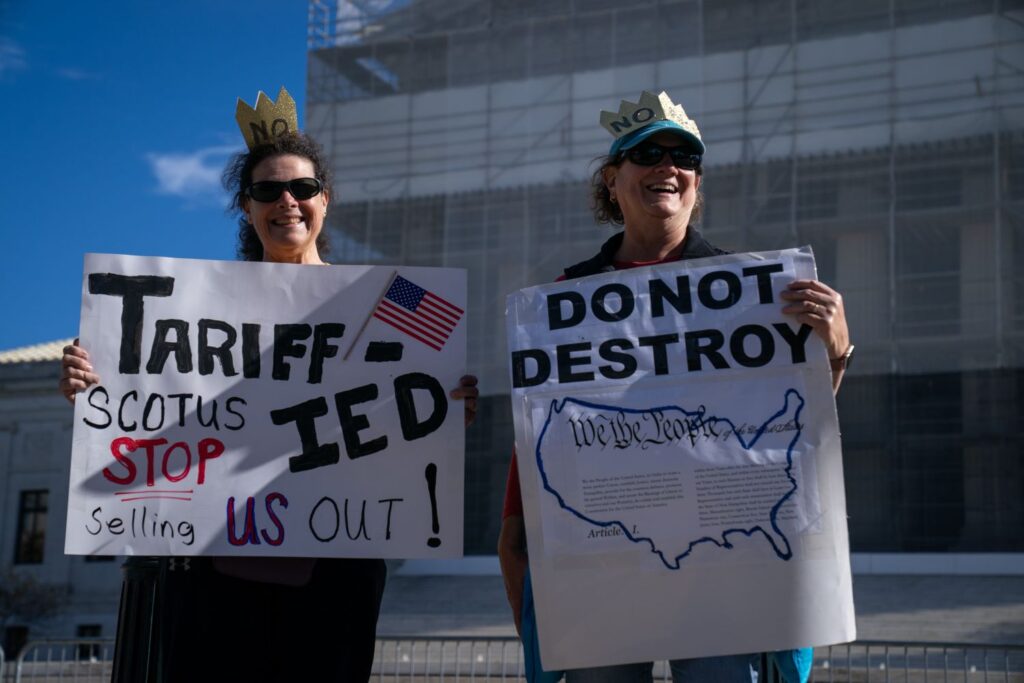Key Takeaways
- The Supreme Court is considering whether to invalidate many of President Donald Trump’s tariffs: a complex case with an unpredictable outcome.
- If the court decides to overturn the tariffs, it could save businesses and individuals money but fuel uncertainty.
- Trump’s trade wars have created uncertainty that has undermined business expansions and hurt the job market.
The Supreme Court’s hearing on the legality of some of President Donald Trump’s tariffs raised fresh questions about the future of U.S. trade policy, stoking the uncertainty that has plagued the economy this year.
On Wednesday, the Supreme Court heard oral arguments in a lawsuit that seeks to strike down some of President Donald Trump’s import taxes. Both liberal and conservative justices probed the administration’s arguments for imposing the tariffs, prompting some legal experts to feel the justices were leaning toward overturning at least some of Trump’s tariffs.
If the justices decide to strike down the tariffs, it could have a significant, though unpredictable, impact on the economy.
Key questions would be whether the court would invalidate all of the tariffs imposed under emergency orders or just some of them; whether the Supreme Court would ask a lower court to decide any of the issues at play; what other tariffs Trump might impose as a “Plan B” and whether whether government would have to pay back billions in tariffs it has already collected.
“It seems to me like it could be a mess,” Justice Amy Coney Barrett said at the hearing.
What This Means For The Economy
If the Supreme Court decides to overturn some of President Donald Trump’s tariffs, businesses could save money in the short run, but face further uncertainty about trade policy in the medium-term.
Stocks initially rose Wednesday during the hearing as justices voiced skepticism about the legality of the tariffs, which have caused confusion and raised costs for many businesses.
Overturning the tariffs would immediately lower those costs and eventually push down prices for consumers, said Rodney Lake, vice dean for undergraduate programs and the director of the GW Investment Institute at the GW School of Business at George Washington University.
However, striking the import taxes down would at the same time create some problems for business leaders planning capital expenditures. Major business expansions take years to plan, and not knowing what trade policy will be would complicate decisions about when and where to build production facilities and set up supply chains, for example.
“It creates uncertainty, which is generally negative for the economy,” Lake said.
“Uncertainty” has been a familiar theme in the economy this year as Trump has raised, called off, and created exemptions for tariffs in rapid succession. Business leaders in surveys have said uncertainty about trade policy has discouraged them from hiring, and is a major reason the job market has slowed down dramatically in recent months.
However, Lake said, many businesses have adapted to the uncertainty and have managed to roll with the punches. Apple, for example, has seen its stock value bounce back after tanking in April amid fears that tariffs on China would drive up prices on iPhones made there. The company quickly responded to high tariffs on China by moving production to India, among other moves to mitigate the damage.
“I think people likely underestimate that great businesses and great management teams figure out ways to navigate through these waters, whatever the policies are,” Lake said.
